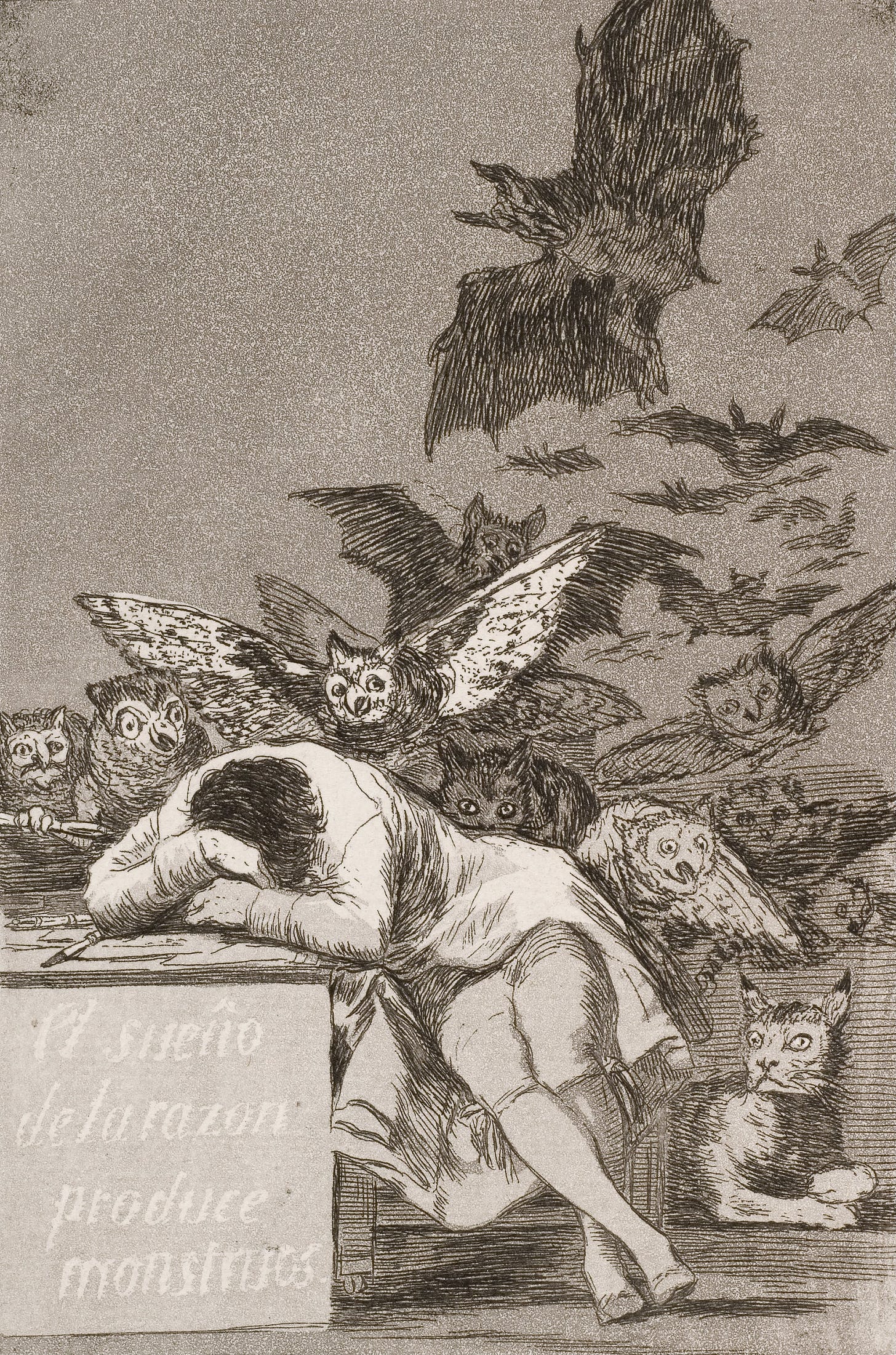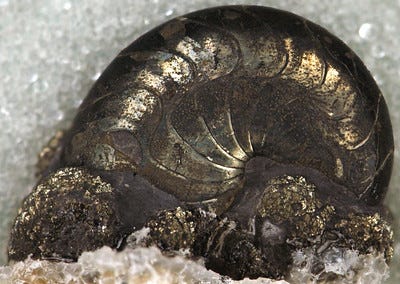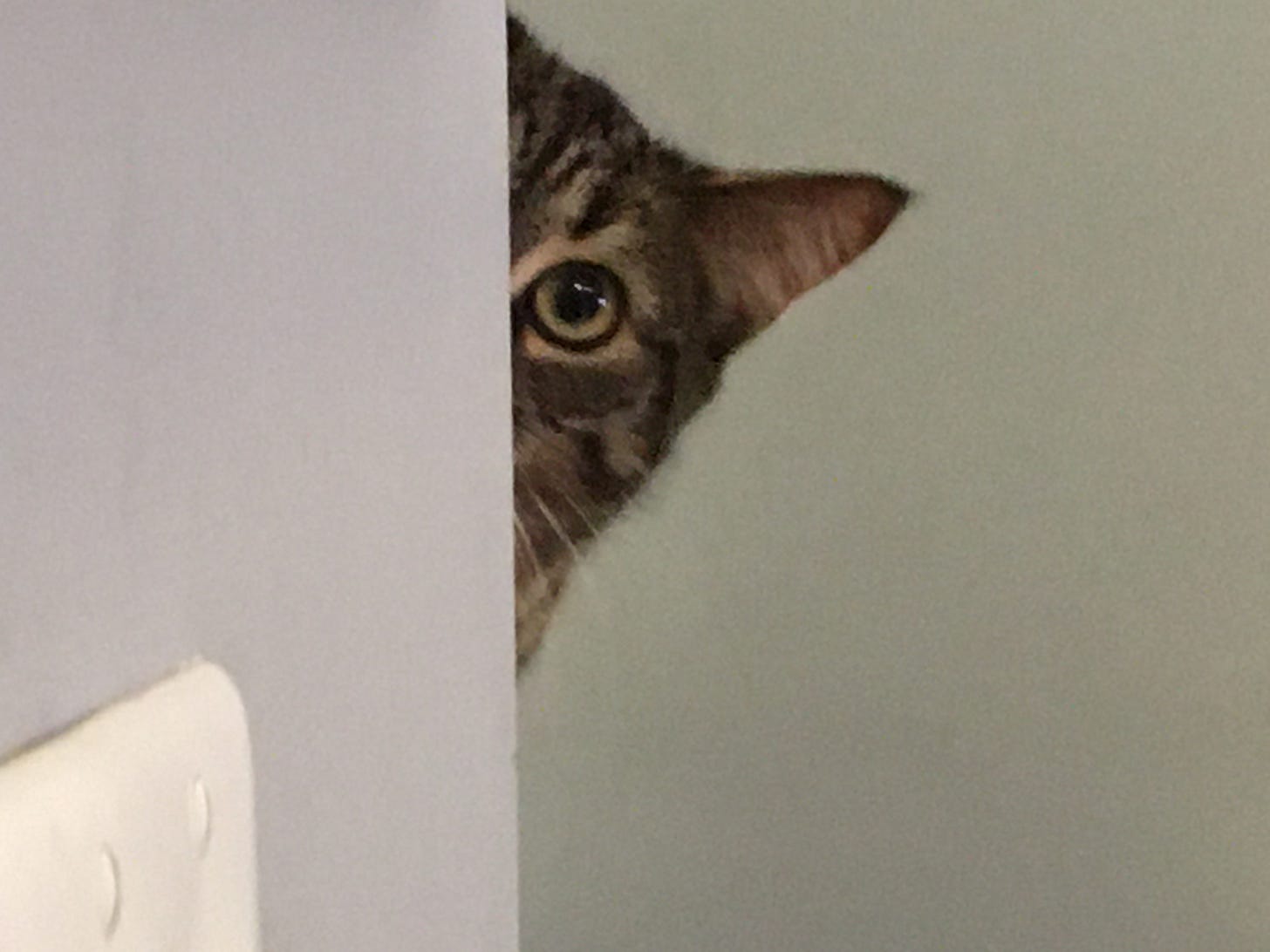How to Live more Lives
Dear friends, with this project & weekly letter*, I share everything I know and continue to learn of how literature, art, creation, wonder, and bold imagination allow us to live more—to, subjectively, live more lives!—with just the one life we each have. Read on for a lot of detail on what I offer and how it works.
*as of Christmas 2023 we are on a short sabbatical of sorts while I try to finish (writing) a book. This is actually a good time to subscribe because all subscriptions are free right now, paid subscription payments have been paused, and Live More Lives will come to you on an undemanding sporadic schedule and experimental, varied and likely abbreviated form. Our regular offerings are described in the following exhaustive Q & A:
Q: Yeah okay what is this?
Well, it’s not self-improvement, bucket lists or bibliotherapy. Live More Lives is a newsletter and project about literature and experience. It is weekly love letter sent to creative and curious literature-lovers in twelve countries and twenty-two US states.
I’m a book writer and essayist with an interest in fiction, but also a journalist, specializing since around 2003 in non-fiction stories of many different kinds that are all fundamentally about how some of the worst aspects of reality—poverty, corruption, oppression, misery, extinction, disease—don’t have to be that way. Most recently, I’ve written about drug policy and the structures of global prohibition that have shaped aspects of our lives we don’t even realize, just like colonialism, white supremacy, fossil fuel lobbying, complacency, and many other things that really ought to be fictional. It makes me feel like Don Quijote, or Cassandra. If only those monsters would go back to fiction, where they belong.
And where, despite monsters, we can live infinitely varied, even impossible experiences.

Thus, Live More Lives is also about my passionate love for two seemingly opposite things: the glorious, infinite life of the literary imagination, and alongside it, the myriad wonders of the real world we often fail to notice, or even actively avoid, as well as the tragedies and miseries and injustices we must work together to change. Live More Lives is nourished by this dual allegiance to reality and fiction, about turning towards them both (read on for how we will do this).
Q: No, but what exactly is this?
A: As a free or paid subscriber,
you’ll receive smart & eclectic weekly reflections, literary essays, personal and professional news, occasional discussion of my ongoing journalism, trial runs for the new book of booksy essays I’m working on about (yes) literature and experience, and immersions in my writing and that of others.
you’ll join me in shop talk on the writing process as I work on a novel trilogy1 and as I go into my third year of learning from a master (none of whose own secrets will be shared here, however—for that, you’ll have to sign up for one of Martín Solares’ legendary workshops yourself);
you’ll be exposed, through links, stories, photos, images, rituals, immersive exercises and descriptions, to written and visual art and to other ways to stimulate the thoughts and the senses through Art and Nature, both broadly defined;
you’ll benefit from exercises to practice your writing skills, your reading skills, and your wondering skills, taking you into both Nature and Art to get ink and dirt on your hands. I hope to eventually offer unique programs relating to the themes of this letter, to help with your writing & creative work, and to have some heady discussions (some of these will be reserved for paid subscribers, or patrons of this work;
you’ll get to relax and listen. I hope—and please tell me if this is something you’re into, as it’s one of my favourite things—to spend some time simply reading aloud to you via Zoom (fiction in real time!) so you can curl up in your pyjamas and ingest literature as a child does, for pure enjoyment. You would not believe the diversity of fiction and other literature that lends itself to being read aloud. Audiobook, schmaudiobook: this is personal, selective, social, and intimate in an entirely different way.

A fossilized goniatite (like an ammonite) in a bed of pyrite, or fool’s gold. "Tornoceras uniangulare aldenense fossil goniatite (Alden Pyrite Bed, Ludlowville Formation, Middle Devonian; western New York State, USA) 1" by James St. John is licensed under CC BY 2.0.
Q: Ok but who died and made you the expert?
Most of all, and running through this project, is a rich vein of gold (Fool’s gold, you understand, but then I treasure the glittering pyrite I have from my mineralogist grandfather2). This is it: in this regular newsletter written directly to you, my fellow adventurer, I share the secrets of living more lives. I have learned these secrets through diligent study at the School of Literature and the School of Life as
a child reader who decided to be a writer at age 6 and began publishing as a teenager;
a young adult with both depression and ambition;
a new mother living with chronic illness, pain3, and a desire to break out of the drudgery of domestic life under those conditions—and to teach my children the art of wonder;
a travel-loving, café-haunting adult immune-compromised in this new Age of Plague;
an autodidact (my formal studies were in biology and political science with a smattering of literature and, later, visual arts) who has read widely, read deeply, and read well;
a journalist, as I’ve said, and the author of two books that use curiosity, Romanticism, and the techniques of fiction to explore my own life and the lives of others, both real people and characters imagined by other writers;
(My writing has been described as sensuous and compelling, intoxicating, captivating and rage-inducing, powerful—and yet somehow both measured and dispassionate).
As a result of all this, I have spent a lifetime living dual, or, rather, multiple lives as I experience both my own adventures and realities and those of fictional characters. A lifetime, then, of learning to take the one life we are each born with and extend it through time and space by facing reality, by writing (which we will work on together), and by reading fiction. What I share with you is the fruit of this reading, thoughts about loyalty, solidarity, empathy, consciousness, subjectivity, experience, aesthetics, discernment, reality, courage, meaning, and enchantment. If you follow along with me each week, I’ll teach you to live more lives.
Q: I see there are paid & free subscription options. But why would I pay for this wonderful word cow if I can get the sweet milk of literature for free?
I’ve been told I have an interesting mind. Anyone can sign up and get access to it via this newsletter and website. Everybody gets to read the Sunday essay on living more lives! Paid subscribers—that is, patrons of my work as an independent journalist, small-press writer and literary enchantress—get special benefits and more to read each week, while enabling me to devote precious energy to writing directly to everyone with the extraordinary Good News of how, through literature, imagination & attention, you—yes you!—can live more lives. By choosing a subscription level you can comfortably afford, you support me getting paid for my work—keeping the lights on and the cat fed—while keeping much of this content accessible to everyone. In turn, I promise to make this worth your every penny, and every minute of your time.
Q: Wait, did you say cats?
Yes, of course! You will enjoy frequent visits from my familiar, Kinu. In addition, you will get better at writing, imagining, thinking widely & deeply, enjoying the wonders of reality (which I will share with you in liberal doses), and basking in the many lives you can live in just one …by rediscovering the pleasures of fiction. Relax, sit back. It’ll be a glorious trip!
Q: Could you tell me again, slowly?
To start, I’ll send out a main essay every Sunday so you can read it with your morning coffee or still huddled in bed. Some weeks this letter may be more casual and personal. Others will involve me agonizing over every comma to produce a rich, polished, pleasantly digressive essay about one or another aspect of literature and experience. I will work over time to strike the right balance and appreciate your patience as I figure it out through trial and error (a suitable process, as the word essay of course comes from the French/Old French essai, a trial or attempt). I will usually aim at a Goldilocks of not-too-long, not-too-short but expect the length to vary, too. As in a magazine, the main essay focused on fiction will, sometimes, be accompanied by shorter notes on news or about the natural world. On Fridays paid subscribers will receive a miscellany that, magically, usually develops into a proper essay with a theme and a point. It starts, though, with pages towards a commonplace book: bits of what I’ve been reading or reading I love and am gripped by the need to share, with enough information to find the original sources if you want to read more. Create a folder in your bookmarks marked commonplace book and over time you’ll build your own ‘book’ of treasures. Sometimes (usually depending on space) either the Friday or the Sunday essay may include rituals and exercises to stimulate your creative thinking and writing, or just to relax and let your mind wander.
Every new edition of the newsletter, regardless of the type, goes directly to your email inbox. You can also read it online on the be-oo-tiful Live More Lives website by visiting the site directly as you’re probably doing now (substack.carlynzwaren.com), or by clicking on the title of the email in your inbox (at which point you are whisked there on a virtual magic carpet)
As the generous patronage of those who choose to sign up as paid subscribers allows me to buy myself time to create them4, I hope to develop some special offerings that you’ll find about through the newsletter: online courses about different aspects of writing and literature (I’m working on something about science in fiction—not science fiction, though); one-on-one help with your writing; story time where you sit back while I read aloud to you on Zoom from old favourites and new discoveries drawn from across the vast landscape of the written word.
About Substack
To find out more about the company that provides the tech for this newsletter, visit Substack.com.
A trilogy: three genres, three time periods, one dystopian city.
And as Isaac Asimov said of the Shakespearean fool, “That, of course, is the great secret of the successful fool – that he is no fool at all.” An ironist and a speaker of truth to power, the fool entertains, criticizes, turns received wisdom inside out (having no illusions), makes the familiar strange and, by translating the action of the play into terms more familiar to the audience, makes the strange familiar. The fool might, in fact, be the ideal literary critic.
More on this to come as we get to know each other, which I hope will happen over time. As you may already know, if you’ve read my books or happen to live with me, I have a degenerative spine disease called ankylosing spondylitis (AS) that, since before I was diagnosed in 2007, has come to affect every facet of my life. It’s mostly been for ill, of course, since it causes pain, stiffness, fatigue, a bunch of systemic woes, and daunting co-morbidities, and treatment leaves me immune compromised during a global plague—and yet, if I had the choice perhaps (perhaps!) I would choose not go back in time and undo it. That’s because, while they’ve inflicted pain and loss and made it punishingly hard to earn a living through regular work, AS & certain other health disasters have forced me to focus ruthlessly on what I believe is important. As it turns out, that comes down in large part to an allegiance to wonder and the imagination, and especially to literature, and to sharing that wonder.
Your support lets me devote time I otherwise simply could not—not without sacrificing health or failing to pay the bills or sending my kids to sweep chimneys rather than going to university—to reading and writing and sharing the fruits of both with you, working hard, if in paced bursts and at strange and ghostly hours, to make this letter the beautiful offering I imagine. The imperative to do more with less has taught me many useful things I aim to share with you as well as we go on together.


